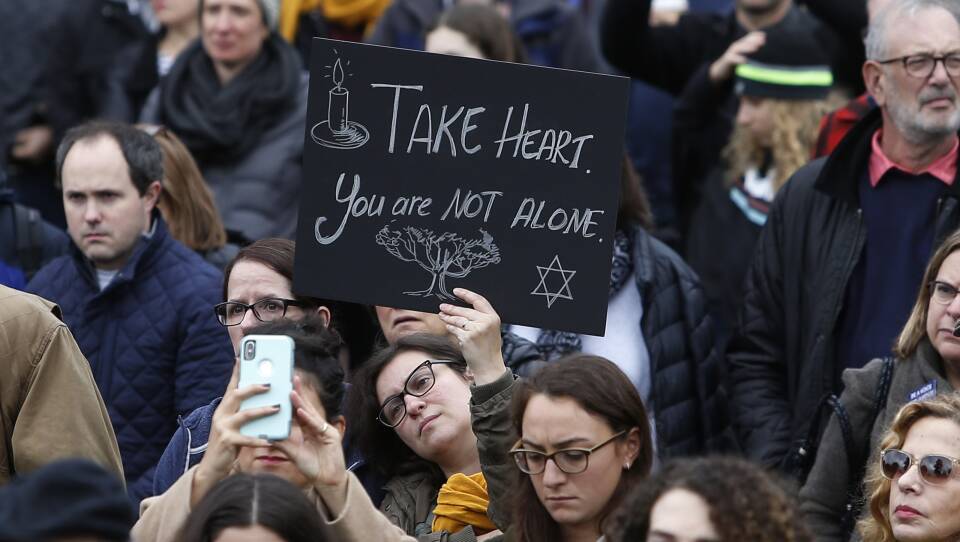Friday night and Saturday morning, Jews will observe the first Sabbath since the murders last week of 11 congregants at Pittsburgh's Tree of Life synagogue.
The American Jewish Committee called on Jewish communities and allies this week to fill synagogues for a show of unity and support in what they have called #ShowUpForShabbat.
In Greater Boston, Senior Rabbi David Lerner of Lexington’s Temple Emunah says Jews need to be able to move beyond the tragedy of Pittsburgh and to feel safe as a community.
"But at the same time we have to hold this,” Lerner said. “This is a moment in American Jewish history that is unique and uniquely horrific. And so we have to spend some time coming to terms with it understanding what it means for us."
Rabbi Lisa Eiduson of Sudbury's Congregation B’nai Torah says her congregants say they're worried about the security of the temple, but she knows their fear goes deeper than that.
"I don't have any magic words. None of us has magic words,” Eiduson said. “What I do think we have at the synagogue is something very powerful that has kept the Jewish people safer and at least not alone. And that is a sense of community."
Eiduson and Lerner both say the wider religious community has reached out to them and their congregations.
In Sudbury, Eiduson says the local Methodist pastor left a beautiful plant at her synagogue, saying it was a "Tree of Life."
"I was extremely touched and moved by that,” said Eiduson. “So we are not alone, and we need to continue to cultivate not only our own ranks, but the Christians and Muslims around us who are of one mind and one heart, and see themselves as Americans, the way we do."
Lerner says he hopes his congregation leaves the Sabbath service feeling a sense of love and support in the face of hate. And that they recognize that while there has always been anti-Semitism, there are important changes for his congregants to note in looking back at its long history.
"When there were acts of anti-Semitism, the police were not running in to save Jews,” Lerner said. “When there were acts of anti-Semitism, other faiths were not coming out with messages of condolence. Today we have many partners who are willing to stand with us. And that makes this a different moment and one that leaves me with a sense of optimism."
Lerner says he hopes his congregants will share this sense of optimism and hope for the future.





